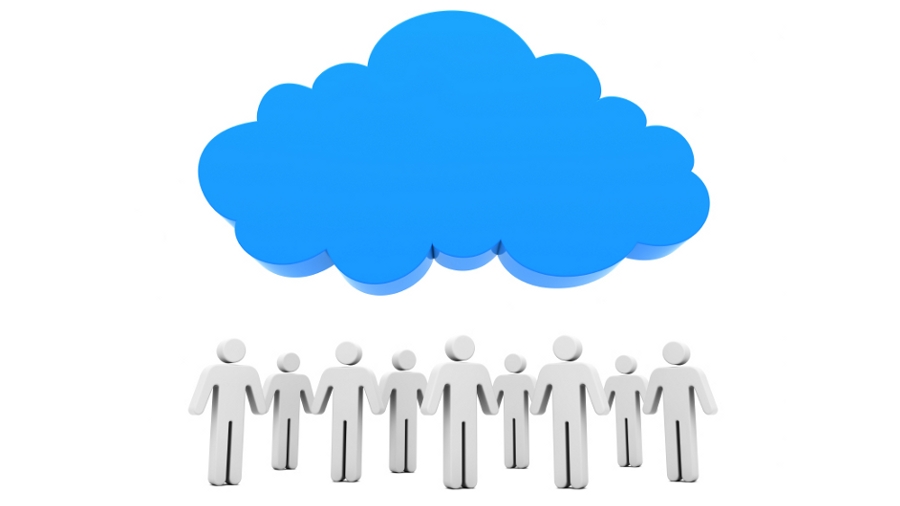Making your journey to cloud
Lower costs and manageability are key

A recent Gartner survey on the future of IT services states that 80% of organizations said that they intend to use cloud services in some form within 12 months, including 55 percent of the organizations not doing so today.
Certainly cloud isn't new but companies are still in the process of understanding what works for their business. What they can't do is fall in the trap of following the crowd and so need to know what all the options are - be that cloud, on-premise or hybrid - for their business.
With today's business environment epitomised by flexible working and a hyper-connected workforce, the implication that cloud computing is now universally accepted among small and medium businesses as a tool of choice is well founded. Yet for many, cloud is still very much the exception rather than the rule when it comes to fulfilling IT requirements in the business mainstream.
Everyone doing it?
It seems like the entire world is moving to the cloud. Cisco recently predicted that 60% of business workloads globally will be managed via the cloud by 2016. Whilst a recent Gartner survey on the future of IT services states that 80% of organizations said that they intend to use cloud services in some form within 12 months, including 55 percent of the organizations not doing so today.
The benefits of cloud, which offers more flexible and scalable installations for lower initial costs, are irrefutable to the extent that software and applications delivered over the web are now widely seen as the future of business computing.
The cloud has firmly entered the business consciousness, yet by no means is it the norm amongst small, medium and growing businesses, many of whom have existing systems in place that working efficiently. So what's all the fuss about?
Lower costs and manageability
The cost of entry for cloud software is reduced, as unlike on-premise applications (where a bigger up-front investment is required to purchase the hardware and software) you are paying monthly for the service and the computing power needed to run it.
Sign up to the TechRadar Pro newsletter to get all the top news, opinion, features and guidance your business needs to succeed!
The cloud's 'time-share' mentality spreads the costs out between all businesses hosted in the same facility, maintenance in the cloud can be carried out cost-effectively and necessary upgrades are easily negotiated.
Scalability
The scalability offered by cloud based solutions is a huge coup. As your business grows there is no need to worry about replacing your server as new users can be added at the touch of a button.
This is ideal for fast-growing companies that experience seasonal surges in demand, or surprise/irregular spikes, knowing that the system will be running effectively when it's needed most. Businesses can quickly upscale computing power as needed.
Flexibility
One of the biggest advantages of cloud is that it provides access to data anywhere, at any time. It supports 24 hour day operations, whether you're a founder stuck to your desk or a COO of an international business that needs to run around the clock, it provides the flexibility businesses need to cater to customers 24/7.
Of course whilst there are benefits, the one consistent concern with the cloud remains data security. However providers such as Microsoft Azure and Amazon have proven their security credentials through years of reliable, 99.9%-plus provision and those that don't drop out of the market pretty quick.
Other options for businesses
Whilst the benefits of cloud are abundant, it's not the only option. Adopting cloud technology isn't an all or nothing decision; companies will often retain on-premise solutions or even opt for a hybrid approach, which is by no means a bad thing.
Established businesses that have recently opted for on-premise solution shouldn't doubt that decision because of the buzz around cloud.
If a business is running efficiently on existing on-premise servers and storage, make the most out of the investment to see a tangible return and utilise in-house adaptations to achieve solutions rather than introducing a new system. Reassess software options when this is no longer the case or requirements change - for any business, changing software is a big deal so it needs to be a considered decision.
Equally for companies - particularly in highly regulated sectors - wanting to retain full control of their systems and data, they will likely pay a premium for this privilege in the cloud era.
There is no wrong or right answer when it comes to selecting cloud, hybrid, or indeed on-premise solutions. It's whatever works for the business and weighing up the options available should be something every software vendor should be advising to customers.
What to consider on your journey to the cloud….
Every business is individual and has different requirements. Whilst there's no one size fits all for business computing, the underlying considerations should be universal. Businesses need a solution to a problem, whether it be cloud, hybrid or on-premise, these basic questions are a good place to start:
- What are the challenges that face my business?
- Do you need access to data outside of the office?
- What problems are you experiencing with your software?
- Do you need a tailored solution or a scalable solution?
- What would cloud provide my business with that on-premise doesn't?
- Steve Attwell is the Managing Director for Sage UKI's Small and Medium Business Division